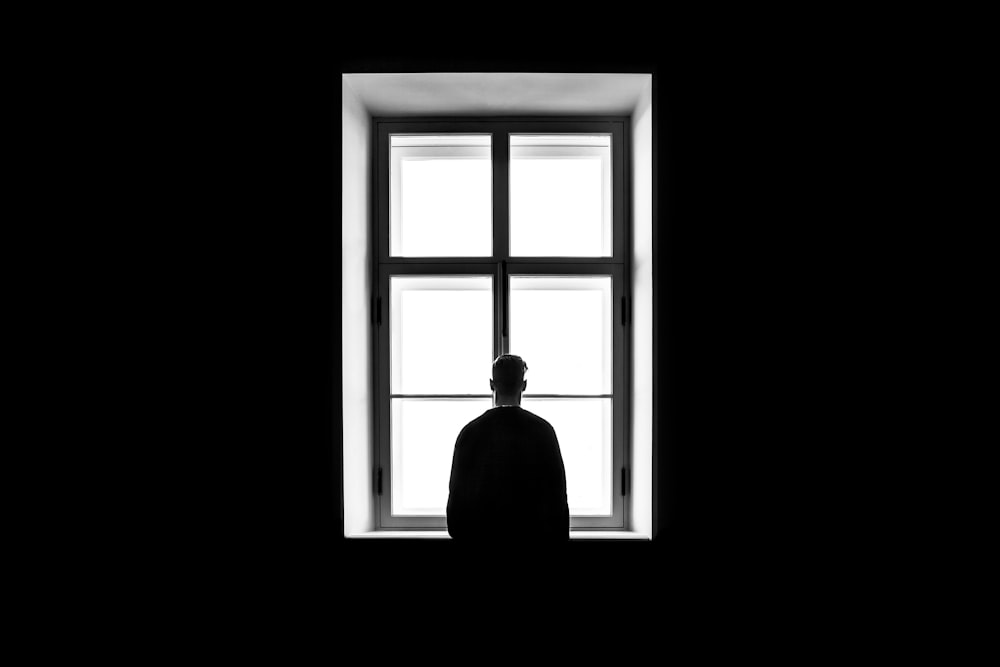Back when I was an undergraduate at the University of Montana here in Missoula in the early 2000s, I took a course on Existentialism. I remember the professor drawing a long line across the white board, some 20 feet or so in length. He said, “this is the history of humanity and this,” he pointed to the end of the line, “this tiny, tiny dot is you.”
Existentialism is a philosophical movement that emerged in the 20th century and has had a profound impact on the way we understand ourselves and the world we live in. One of the central themes of existentialism is the search for meaning in a seemingly meaningless world. The starting point for existentialists is the simple fact that we exist. From that, they ask, “what follows?”
When meaninglessness points to depression
While meaninglessness might be a great source of inspiration for philosophers, it can also be a sign of depression. If your feelings of meaninglessness or purposelessness lead to signs of depression, such as problems sleeping, change in appetite or weight, disinterest in formerly joyful activities, or low self-esteem, then seeking out treatments such as therapy or counseling may be the wisest first step.
The concept of “existential vacuum” is a term coined by Viktor Frankl, an Austrian neurologist and psychiatrist, to describe the sense of emptiness and meaninglessness that people experience when they lack a sense of purpose or direction in their lives. Frankl believed that this sense of emptiness was a major contributor to depression and other mental health problems. He also believed that people who were able to find meaning and purpose in their lives were more resilient and better able to cope with difficult situations.
Frankl would know, as he was a prisoner of the German Nazis during World War II. He saw first-hand how fellow prisoners could lose hope, with often-disastrous results. Those who held fast to meaningful people, passions, and projects in their lives were the most likely to survive the terrible conditions of the concentration camps. His book, Man’s Search for Meaning: An Introduction to Logotherapy followed from his experiences in World War II and his subsequent career as a psychotherapist.
Ways therapy can help
One of the primary goals of therapy is to help people find meaning and purpose in their lives. In this way, therapy can go above and beyond identifying and treating issues like depression and other obstacles to living a meaningful life. Therapists can use various techniques to help clients identify their values, interests, and passions.
Cognitive-behavioral therapy (CBT) is a popular approach that therapists use to help clients find meaning and purpose in their lives. CBT focuses on changing negative thought patterns and beliefs that contribute to depression and other mental health problems. By challenging negative thoughts and beliefs, clients can begin to see themselves and the world in a more positive light. This can help us identify our strengths and interests and begin to pursue activities that bring us joy and a sense of purpose.
The Big Questions
Iddo Landau, Ph.D., offers a fascinating off-ramp to the whole discussion. In an article in Psychology Today, he notes that not everyone cares that much about the meaning of life. But that’s okay. He says that many people who have a meaningful life simply don’t care that much about finding meaning in life. On the other hand, those who are searching for meaning in life are often the ones most needing meaning. So just because you or those around you don’t particularly care about meaning doesn’t indicate anything wrong, and it might be a sign of an actually well-lived life.
For those who are still interested in questions of existence and meaning, there is plenty of great philosophy out there. Albert Camus (1913 – 1960) provides an incredible starting point for exploring existentialist philosophy. After overcoming illness in his teens—with tuberculosis—he came of age in Algeria, a French colony at the time—just as the Nazis took power and later started World War II.
While so much many people around him were blindly celebrating the ending of the “Great War” and the hopes for peace and abundance after it, he saw humanity give rise to yet another terrible death machine. In the face of this, and his own brush with mortality as a child, he dove into pessimism and questioning. His questioning went right to the core of our existence, asking, “is life worth living?”
Camus’ first book, The Stranger, was published in 1935. It was assigned in that Existentialism class I took and I remember it vividly, the way he carefully described the actions of one man killing another, without reason and without sense of accountability.
The work raised questions about the worth of life. It begins with the protagonist hearing of his mother’s death. The funeral is a blur, and we later learn that the protagonist showed no signs of grief. The story continues with a cast of characters we might despise or find empathy toward, including the man that the protagonist murders. The climax, hopefully without giving any spoilers, is when the protagonist bursts out in anger at the world and everyone in it who things we need to have faith and beliefs and hope.
He boldly and defiantly exclaims the meaninglessness of it all and, for the first time, feels happy.
For me and fellow budding existentialists, this was a magnificent moment. Reading of a character so defiantly rejecting the hypocrisies of his day made me feel as if I could do the same and that my feelings of dread and despair weren’t really my own, but were instead pushed upon me by a society gone mad.
This kind of “deep dive” into the anxieties of meaninglessness is not for everyone. But as with so much, great fiction can connect with us in profound ways. Great therapists and counselors can too. Either way, our paths toward meaning (or deeply embracing meaninglessness) are our own.
 Justin Whitaker, Ph.D., holds a doctorate in Buddhist ethics from the University of London. He has given lectures, and taught Buddhist studies and Philosophy at Oxford University, the University of Hong Kong, the University of Montana, and at Antioch University’s intensive study-abroad program in India. A certified meditation teacher, he is a regular contributor to Patheos.com, and Senior Correspondent for Buddhistdoor Global. Justin is the official blog writer for Sunflower Counseling MT in Missoula, Butte, Kalispell, Billings, and surrounding areas. He lives in Missoula with his family.
Justin Whitaker, Ph.D., holds a doctorate in Buddhist ethics from the University of London. He has given lectures, and taught Buddhist studies and Philosophy at Oxford University, the University of Hong Kong, the University of Montana, and at Antioch University’s intensive study-abroad program in India. A certified meditation teacher, he is a regular contributor to Patheos.com, and Senior Correspondent for Buddhistdoor Global. Justin is the official blog writer for Sunflower Counseling MT in Missoula, Butte, Kalispell, Billings, and surrounding areas. He lives in Missoula with his family.



